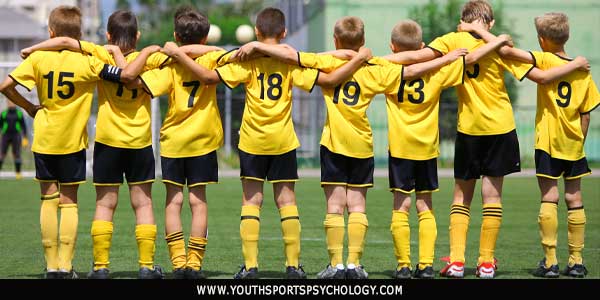
Help Kids Cope with Uncertainty
It’s tough for sports kids during the COVID-19 crisis. Either they aren’t playing sports at all–or if they are, they’re worried about their sports being canceled due to COVID-19.
Such uncertainty creates anxiety in sports kids, says Rebekah Roulier, director of the Champions Network and a former NCAA Division 1 student-athlete. She’s also a college soccer coach who now has a degree in counseling. With the Champions Network, she’s working to teach coaches how to address mental health challenges in young athletes.
“In just the youth sports community in general, I’ve heard that their seasons are being taken away–or if they are back on the field, they don’t know if COVID will cancel the season. It translates to a great deal of anxiety,” she says.
To help kids cope with uncertainty, parents and coaches can show young athletes, through modeling and conversation, how to reduce their anxiety. Explain to kids that no one their age has ever been through a pandemic before, and it’s a challenging situation. Encourage them to take walks or call friends.
“Talk through a plan with them,” Roulier says. “Perhaps you can’t train on a trip with your team, but what can we do together in the backyard? There are practical things a parent or coach can do for kids.”
Young athletes who are accustomed to getting exercise won’t feel right in their bodies, she adds.
They may not possess the communication skills to express that they don’t feel right. Parents, coaches and teachers should check in with sports kids and offer to help them structure their days so they can get exercise.
The answers aren’t always so simple for kids in low-income families. Their families are facing loss of income and housing instability. Working parents are unable to supervise their kids during online classes. “The stressors are enormous,” she says.
Parents, coaches and teachers should watch for signs of stress in these young athletes and be sure to open up the lines of communication.
“Be a good listener, nod your head, maintain eye contact,” she advises. Be sure to use a non-threatening tone of voice. Coaches and parents could also share YouTube videos about athletes who have overcome challenges.
Adults should also contact mental health professionals if they’re worried about their kids’ mental health.
Coaches can play a critical role in helping kids identify and cope with mental health challenges. “Coaches are on the front lines in terms of being able to reach out to kids. They are trusted adults,” Roulier says.
In youth sports, you can help teach your sports kids how to deal with adversity–in sports and life!
Listen to the Ultimate Sports Parent Podcast
Related Articles on Youth Sports:
- How Toxic Sports Cultures Hurt Kids’ Mental Health
- The Link Between Sports Kids’ Mental Game and Mental Health
- How to Care About Athletes’ Mental Health
*Subscribe to The Sports Psychology Podcast on iTunes
*Subscribe to The Sports Psychology Podcast on Spotify
Help Young Athletes Boost Confidence in Sports!
Every day, we receive letters from parents like you who want their children and teens to excel in sports. However, these parents can see fear, doubt, and frustration on the faces of their kids who struggle with the “inner” game of sports. But these parents have no idea how to help their kids overcome the worries, expectations and self-defeating thoughts that prevent their young athletes from feeling confident and successful.
You can benefit from our 15-plus years’ of work in sports psychology and sports parenting research. Now, you can tap into our secrets to sports success through a cutting-edge, 14-day program that helps young athletes overcome the top “mental game” challenges that sports parents face—and the top challenges young athletes face.

